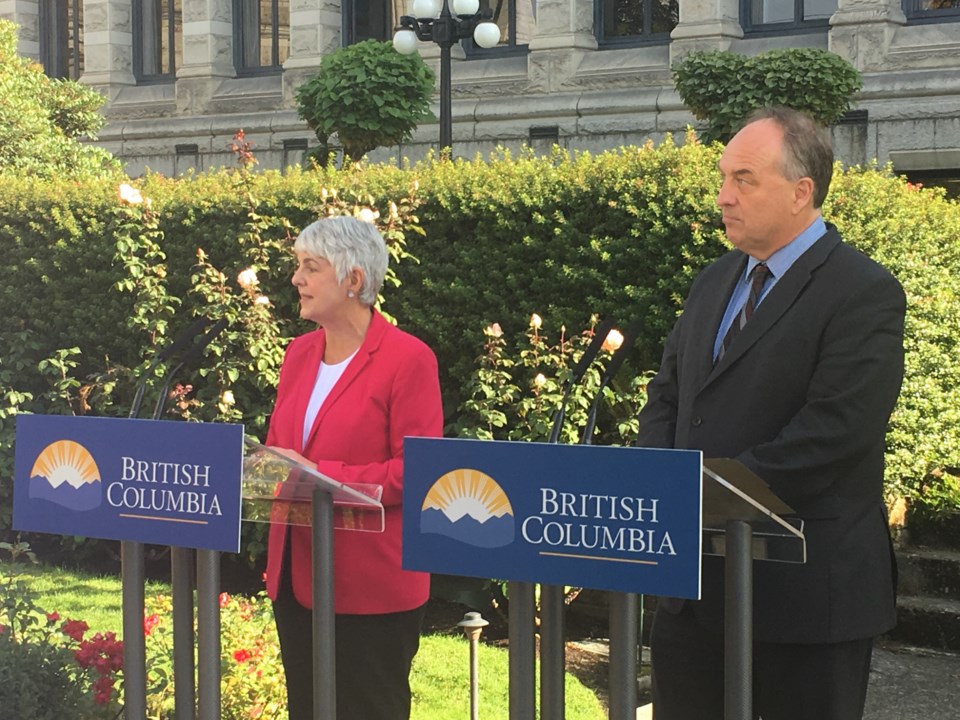The Nanaimo byelection results held several storylines worth considering: the NDP won its fortress; the BC Liberals improved their vote share from 32.5% in 2017 to 40.5%; and the BC Green party vote share declined from 20% in 2017 to 7%.
One underreported theme was the erosion of the people’s confidence in the ruling NDP-Green partnership. Their combined coalition vote fell from 66% in 2017 to 56% in 2019.
The BC Greens have provided several theories about their decline – blaming everything from the NDP’s fear politics to their own inability to tell their story.
Speaking with the Times Colonist, leader Andrew Weaver said the byelection sent a message to Greens to more clearly distinguish themselves from the New Democrats. Further, he said, the Greens have a vision for B.C. while the NDP has “none,” other than they are not Liberals.
Surprising, then, that he decided to have a coalition with such a visionless party.
Any student of coalition politics could have told him that in subsequent elections, smaller parties run the risk of doing less well. The studies reveal that while the smaller parties get more of the blame, the bigger parties get more of the credit.
An honest admission from the Green leader would have told the story of no progress on the environmental front. The honeymoon started to wane with Site C. When the NDP decided they would finish the dam, it was Weaver who took a lot of heat from Site C opponents, who thought the project dead and buried.
One project that did get cancelled, the Massey Tunnel replacement project, means south Fraser residents struggle with commuting nightmares on daily basis. The NDP have raised taxes and fees to add more burden to already heavily-taxed working families, while offering no concrete solutions to infrastructure challenges and housing affordability.
The Green Party’s report card on their central issue doesn’t receive a passing grade. Taxing people to death is not an environmental policy, but the NDP-Green partnership has pursued it so far. Less money in people’s pockets doesn’t help the economy or the environment.
Working people also need to find good paying full-time jobs to pay their bills. Cancelling (or stalling to the point of cancelling) major infrastructure projects has significantly negative impacts on the job market. In addition, the government’s decision to hand over major construction projects to handpicked unions means not only more cost to taxpayers, but less job opportunities for the 85% of construction workers who are not part of the NDP union club.
The Greens’ coalition with the party of “no vision” was based on one ulterior motive: imposing a proportional representation electoral system.
The Greens – and the NDP too – had hoped to hoodwink the people and get approval for a system they felt could have given them a permanent hold on power.
David Eby tried every cheat code to get a Yes vote, leading the Globe and Mail to call it “Canada's least honest attempt at electoral reform,” and noting Eby had stacked the deck for prop rep.
While the strategy was to keep the Green leader silent, Premier Horgan tried his “hip youth lingo” to win over Millennials, only to insult their intelligence.
Despite all these tactics, the people of British Columbia delivered a resounding no – and now, the utopia of PR is now turning into a question of survival for Andrew Weaver’s party.
His Green Party’s continued unwavering support of the NDP will soon return the Greens to fringe status – unless he can break away.
Dr. Shinder Purewal is a professor of political science at Kwantlen Polytechnic University, a regular political commentator, and the author of two books, Tandoori Democracy and Sikh Ethnonationalism and the Political Economy of Punjab. He lives in Surrey.



